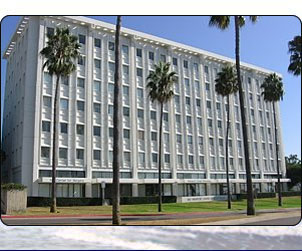FAQ’s
 |
|||

|
 |
Aging
1. What is the definition of aging?
Aging is a syndrome of changes that are deleterious, progressive and universal. Aging damage occurs to molecules (DNA, proteins and lipids), to cells, and to organs. Diseases that increase in frequency as we age include arthritis, osteoporosis, heart disease, cancer, and Alzheimer’s disease. The traditional definition of aging is that it is an inevitable process of becoming increasingly disabled that is evidenced by certain symptoms, such as failing memory and less energy. A more modern approach looks at the biological processes of the disabilities associated with aging and the degree to which the physiological deterioration can be prevented or altered.
2. What are the theories of aging?
There are at least a dozen theories on the causes of aging that have been proposed, but the most popular focus on the general categories of programmed aging and “wear and tear” aging. Programmed aging includes the genetic programming encoded within your DNA and free radical damage to cells as well as the disruption of cell metabolism. By contrast, aging due to wear and tear is not the result of any specific controlling program, but is the effect of many kinds of environmental insults such as radiation, chemical toxins, trauma, and metal ions on the body’s ability to repair and maintain its organs and cells. A drop in hormone production, which causes a decline in the body’s ability to repair and regulate itself, is also a critical component in aging.
3. What is the association between hormones and aging?
A “neural hormonal clock” in the brains of mammals has been suggested to influence aging through the neuro-endocrine system. Hormones alter the gene expression of DNA throughout the body and we develop symptoms of aging as hormone levels decline. The pituitary gland, the master gland under the influence of the hypothalamus in the brain, influences the physiology of all cells in the body. It has been found that when the pituitary gland of mammals is surgically removed and supplements of essential hormones are given, maximum lifespan increases by one-third to one-half.
4. What is the relationship between inflammation and aging?
Acute inflammation is a necessary response to illness and injury which turns on and off under normal circumstances. This balance can be altered when the body is subjected to too many toxins and poor lifestyle choices, and the result is chronic inflammation. Chronic inflammation is the root cause of many degenerative diseases including coronary artery disease, Type II diabetes, Alzheimer’s disease, and autoimmune diseases such as arthritis, chronic fatigue, fibromyalgia, lupus and asthma. As we age, the body’s ability to turn off the inflammatory process diminishes and the effects are exacerbated by an unhealthy lifestyle. Reducing chronic inflammation through lifestyle modifications such as stress reduction, exercise, and a balanced diet and replacing deficiencies in hormones and nutrients can dramatically alter or reverse the effects of aging.
Aging
Anti-Aging Medicine
Functional Medicine
Preventive Cardiology
Stress
Adrenal Fatigue
Hormones and Hormone Replacement
Nutritional Supplements